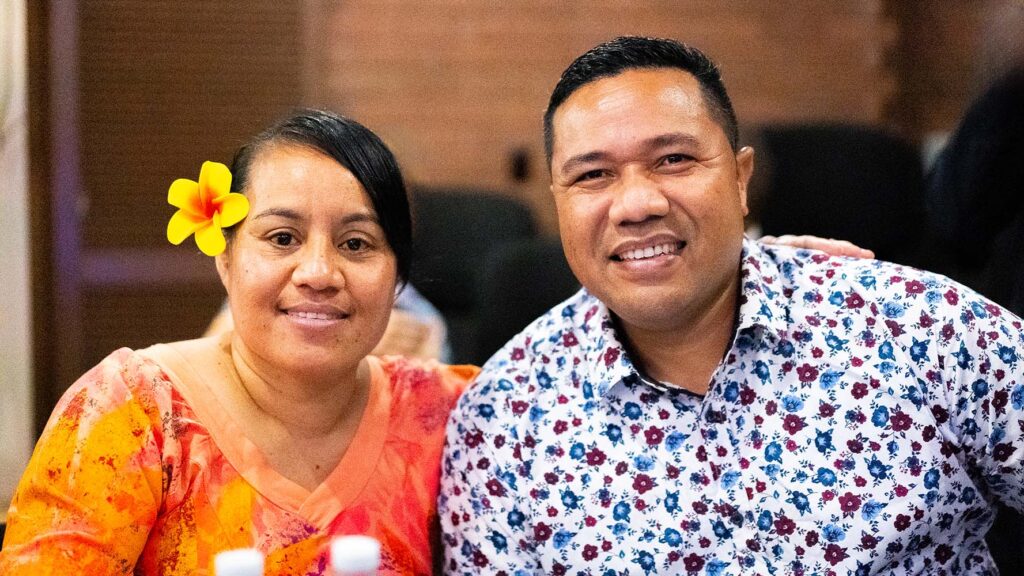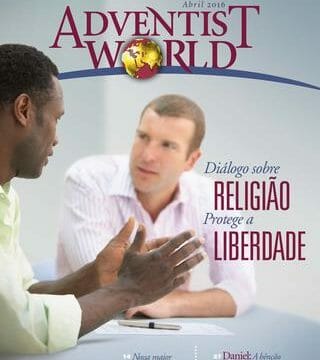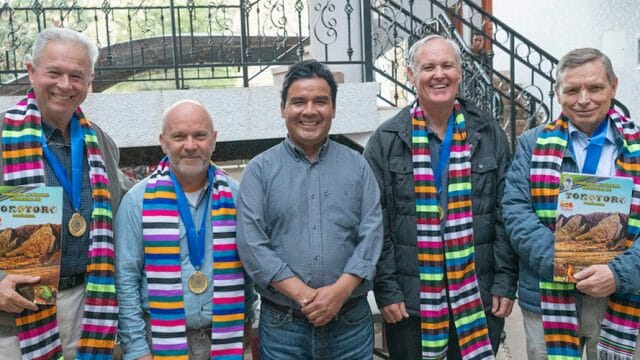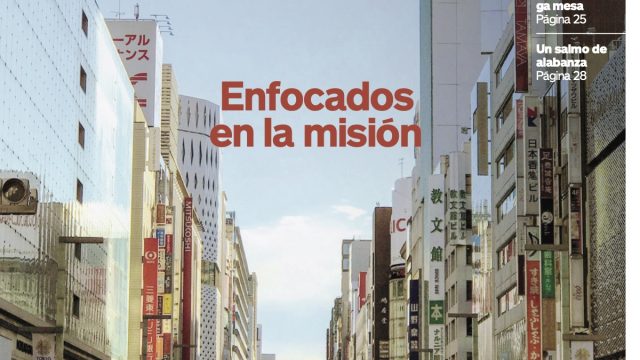Two-day event calls participants to reflection and action on behalf of Adventist mission.

Seminary students attending a recent on-campus symposium at Avondale University in Cooranbong, New South Wales, Australia, learned about crossing cultures for mission and committed to addressing the injustices of race and racism.
The event, Crossing Cultures for Mission, took place October 20-21 and featured eight presentations, including one from Glenn Townend, president of the South Pacific Division of the Seventh-day Adventist Church. Townend used the stories in Mark about feeding the 5,000 and the 4,000 to speak about cultural blind spots.
Nathan Brown’s, “A Revolt against Creation: Our Calling to Undo Racism,” gave participants an understanding of the theological and historical underpinnings of racism. Co-editor of a book about how an Adventist faith responds to race and racism, Brown said racism is a factor in injustice and is more pervasive and insidious than we often assume. He used chapters in A House on Fire to recommend ways those in ministry could address the realities.
Inspired by Brown’s presentation, participants drafted a statement they released later that day. While recognizing their diversity, the statement affirms “our most basic belief … that we are created by God and in the image of God.” It also affirms “the incarnation, mission, and ministry of Jesus models and calls us to serve all peoples,” including “listening to their voices and diverse experiences, as well as standing and speaking for justice, equity and opportunity.” The statement commits participants to “continuing the work of learning, addressing and responding to the history, theology and ongoing injustices of race and racism in our lives, our church and our nations” and to “celebrating and enacting the reality” of the hope expressed in Revelation 7:9, where the multitude of nations sing praise to God. (The full statement is included at the end of this article).
Seminarian Hensley Gungadoo opened the symposium with a presentation about cross-cultural ministry in Acts. While this ministry exposed prejudice and dogmatism, the early church confronted these challenges and implemented changes that saw Christianity fill the Roman Empire by the end of the first century.
Colleague Erika Puni described culture as God’s gift to humans. The incarnation of Christ in the Gospels is, he said, an example of a God who is above human culture and yet willing to work through culture for the salvation of all people.
Mark Pearce, of the Ellen G. White/Seventh-day Adventist Research Centre, reminded participants of the Adventist Church pioneer’s advice to those ministering in cross-cultural contexts: value the people you are trying to reach and treat them of equal importance.
Tracie Mafile’o closed the symposium with a presentation about location. Locating yourself — for critical self-reflection and learning about our sociocultural positioning, including our privileges. Locating others — for meaningful connections and relationships, acknowledging the lived realities for diverse cultural groups. And locating the level — for analysis and action at the institutional, organizational, and societal levels, calling for action in policy and governance spaces.
The other two presenters represented other perspectives: Julie Nagle, coordinator of Aboriginal and Torres Strait Islander Ministries (ATSIM) for the church in South New South Wales, gave a presentation titled “An Indigenous Perspective”; and Edison Akrawi, a minister in Sydney with pastoral ministry experience in Iraq, gave a presentation titled “Our Muslim Brothers and Sisters.”
Crossing Cultures for Ministry is an initiative of the Adventist Church in the South Pacific, Australia, the New Zealand Pacific, Avondale, and the church on its Lake Macquarie campus. Future sypmposiums will cover making disciples (May 2024); planting churches (October 2024); and reaching our cities (May 2025)
In a message to participants, Wayne Krause, director of Adventist Mission and Mission to the Cities strategy leader for the South Pacific Division, wrote that he is praying “you will be equipped to be the disciples, disciple-makers and church planters God intends you to be [and] that you will have a passion for those far from God, particularly in our cities.”
Statement from Participants
As a diverse group of disciples and followers of Jesus — students, teachers, leaders, and friends — we affirm our most basic belief about each other and what makes every person human is that we are created by God and in the image of God. Further, we recognize that the value God assigns to individual beings is ascertained at the foot of the cross. We believe the gospel is personal (see John 3:16), but it is also communal (see Luke 4:18, 19). We also affirm that the incarnation, mission, and ministry of Jesus models and calls us to serve all peoples. This includes listening to their voices and diverse experiences, as well as standing and speaking for justice, equity, and opportunity for those we serve and minister alongside.
We commit to continuing the work of learning, addressing, and responding to the history, theology and ongoing injustices of race and racism in our lives, our church, and our nations. We look forward to being part of “a vast crowd, too great to count, from every nation and tribe and people and language” that will sing praise to God together in front of God’s throne (Rev. 7:9). And we commit to celebrating and enacting the reality of this hope in our lives, communities, churches, and ministries today.
The original version of this story was posted on Adventist Record.








